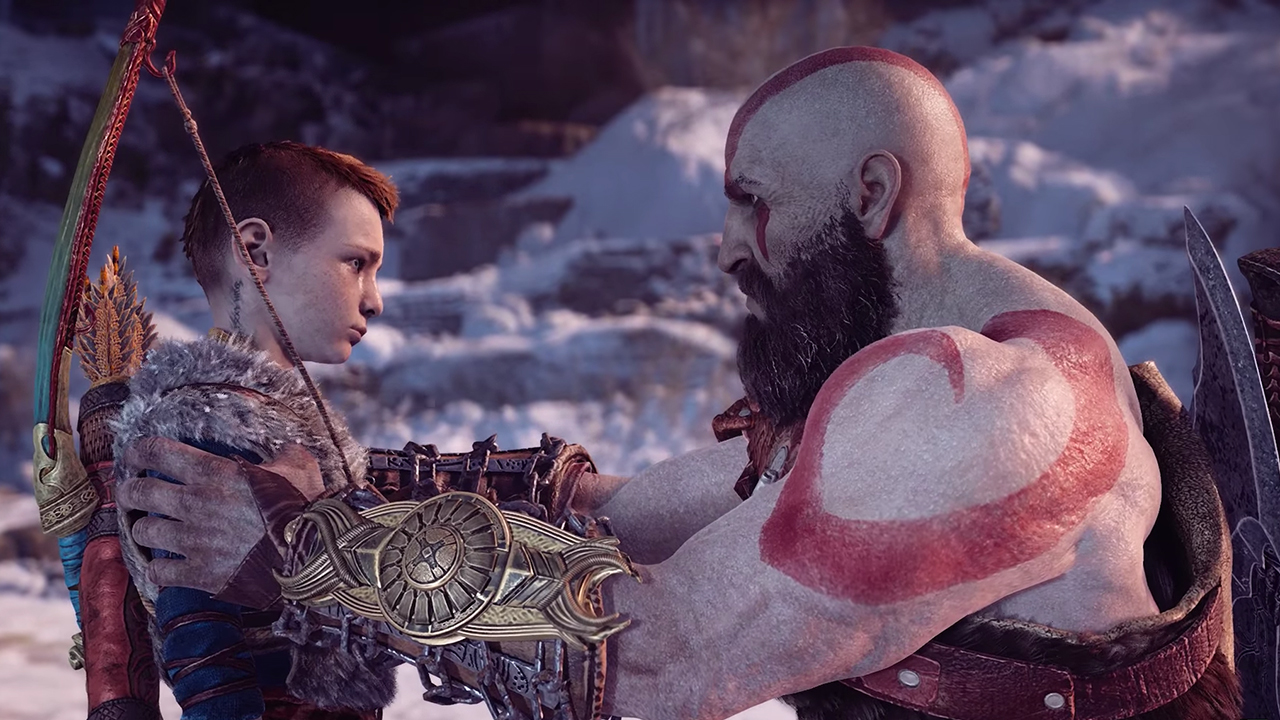
(Image credit: Sony)
Change is possible. This was the bold declaration from creative director Cory Barlog featured at the start of the Raising Kratos documentary. Released on YouTube five years ago, the documentary delves deep into the making of the God of War reboot, from its initial concept to the unforgettable E3 reveal and the game’s release in 2018. Countless times I’ve watched it since finishing Kratos and Atreus’ epic adventure. Barlog’s words have stuck with me as we approach the 20th anniversary of the original 2005 God of War.
Before the 2018 reboot, I was unfamiliar with the series and, in hindsight, it’s likely my 13-year-old self wouldn’t have resonated with the brutal nature of the earlier titles. However, drawn by the buzz around Kratos’ return, I ventured into unfamiliar gaming territory in 2018. That choice resonated deeply with me, proving that change is possible. This ethos not only defines the game’s story and its relatable characters but also magnifies what an achievement it was for Sony Santa Monica Studio in crafting one of the best reboots in recent gaming memory.
God of War has earned its spot among the best PS4 games of all time, and with good reason. Former co-founder and head of Sony Santa Monica Studio, Shannon Studstill, aptly put it in the documentary, highlighting the inherent risks of such a concept – the reboot. Reviving a series and steering it in an entirely new direction isn’t easy. Kratos was well-known as a violent anti-hero. Even as someone new to the series, I knew of his dark past — like the horrific act of murdering his own family. Recasting him as a father figure meant treading complex narrative paths.
In a PlayStation blog post just before the game’s launch, Barlog himself stated, “we intentionally made him [Kratos] loathed, an antihero. Now we’re trying to make him a character you care about”. It’s a seemingly simple goal, yet it was anything but. The team brilliantly succeeded in transforming Kratos into a character audiences could empathize with. Prior to the reboot, he was just another name, but throughout both God of War and its sequel, God of War Ragnarok, I’ve felt a deep connection to Kratos, Atreus, and other pivotal characters like Freya, whose stories resound deeply.
The reboot paints a timeless tale set in a realm steeped in Norse mythology, focusing on redemption, family bonds, and what it means to be human amidst gods and monsters. Central to this is the relationship between a father and son, with Kratos and Atreus aiming to learn and understand one another. Atreus shifts Kratos’ world, compelling introspection about his identity and goals. Meanwhile, Atreus embarks on his journey of self-discovery, guided by his father. Their evolving relationship and interactions with other characters remain impactful to this day.
Many figures in God of War rank among my favorite gaming characters, largely due to the phenomenal performances of the actors. The game is a stunningly cinematic experience packed with action, emotional depth, and unexpected turns. More importantly, God of War and its sequel portray the potential for personal growth and deeper human connections. In the reboot’s climax, the goddess Athena tells Kratos, “you cannot change, you will always be a monster”, to which he poignantly replies, “I know”. Yet, Kratos demonstrates both to himself and to Athena that change truly is possible.
As we look to the future, many exciting PS5 games await fans eager for new adventures.